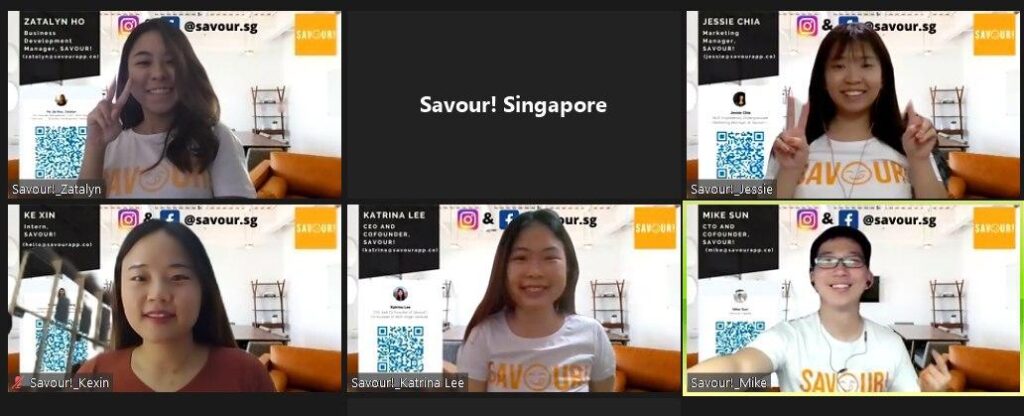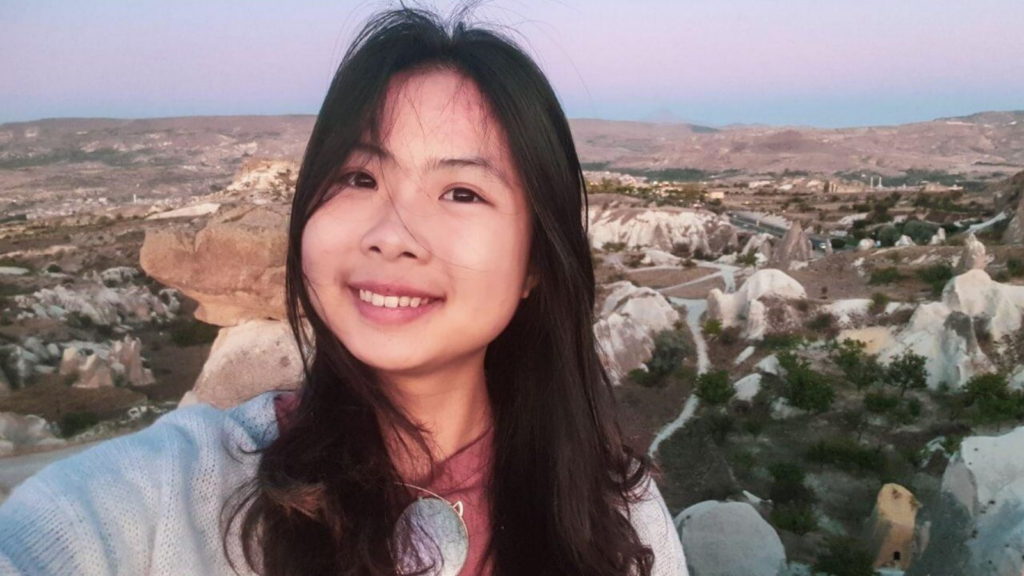ChangeMakr Asia asks questions to Katrina Lee, CEO and co-founder of Savour! App, a Singapore based tech-for-good startup tackling food waste and food insecurity.
Food still accounts for about 10 per cent of all waste generated in Singapore, but only 18 per cent of the food waste is recycled. The rest of it is disposed at the waste-to-energy (WTE) plants for incineration (Source : NEA). We decided to have open questions with Katrina Lee, the CEO and Co-founder of Savour! App, a Singapore based tech for good tackling food waste and food security, who wishes to change things around.
How did you come to create and start Savour! App ? Was it more a case of making it up as you went along?
I Started Project Savour.sg (Savour!) in August of 2019 in a university entrepreneurship club, and it grew from a student project into an actual startup within a year’s time. My inspiration for Savour! came from my past experiences running my own e-commerce store, working in the F&B industry (where i saw huge amounts of perfectly good food wasted, volunteering in the non-profit section (where i saw many low-income households facing food insecurity who could have received this wasted food), and working at a social enterprise in Myanmar that tackles water shortages and pollution issues.
I started out with a rough idea of wanting to create a solution that effectively and efficiently reallocated food waste to help those in need. My idea constantly iterated and pivoted further to become today’s one-stop B2B e-commerce and sponsorship web app platform offering regular, expiring, blemished and surplus food, as well corporate gifts, office suppliers and rental services, reducing food waste and food insecurity while empowering charities and social enterprises with savings as the months go along.
What were some of the biggest challenges for you personally and for the organisation when you starting savour! app ?
One of the biggest challenges for me and the organization when I started Savour! was getting my first merchant and customer. As a student entrepreneur with no product developed yet but — merely an idea and a strong passion — I sent emails to 100 merchants requesting partnerships, but only one replied to me with interest. I did not give up, however, persevering on with more emails, more calls and more store visits. After a few months, my persistence and sincerity paid off when I started to see positive results in the form of more replies and more customers coming aboard.
Another big challenge i faced was securing the first funding for my organization. As a student-run social enterprise, funding opportunities were few and hard to come by. I bootstrapped first, then participated in many startup pitching programs, competitions and grants to secure funding for my pitch. With every rejection and failure, i took it in stride and continued to apply for more, while seeking feedback to constantly improve my idea and the way i conveyed it. Eventually, my team won one of the competitions and secured the first funding that was able to cover all the expenses needed for developing the platform, operations, and acquiring customers.
How about today ? What are some of the biggest challenges you and your organization face today ?
One of the biggest challenges me and my organization, Savour!, face today is maintaining and upgrading the platform to provide optimal satisfactory user experience by facilitating transactions between merchants and customers. How Savour! deals with his challenge is to constantly check in with our merchants and customers on their user experience with the platform, getting feedback from them to make improvements to our platform and product offerings.
Another one of the biggest challenges is having to rapidly scale up our acquisition of more merchants and B2B customers to ensure a constantly growing supply and demand, which generates interest and drives transactions to happen within the platform. Our team has dealt with this challenge, however, by growing and recruiting more like-minded passionate individuals into the team, such that there are more resources pooled for our goal.

Personally, what is important to you in this world ? What do you stand for ? what issue, problem, or opportunity evokes strong emotion in you ?
What is important to me in this wold is having a purpose, a mission and a ‘why’. I find fulfilment in doing things that have intrinsic motivations, meanings and end goals in mind. I need to know that i am able to contribute to making a significant positive impact in lives, as well as to contribute to making the society a better place. What i stand for is empowering those in need, those who have potential, and others who want to do good.
I am an opportunist, so the opportunity that evokes strong emotion in me is when I see an issue that is close to my heart, such as food insecurity, and a current pressing problem that could have been avoided, such as food waste. That inspires me to want to take action by brainstorming potential solutions that could solve these issues and problems, creating a solution that tackles both food waste and food insecurity
If you could give prospective social entrepreneurs/change makers two pieces of advice, what would they be?
My first piece of advice is to just do it. Simple as that. Don’t think about all the reasons it could go wrong or the sacrifices you have to make to pursue this. If you get inspired somewhere one day, just start exploring it. You don’t have to have a complete idea or team to start digging into the issues and working through possible solutions. Entrepreneurship is not going to be a smooth sailing, but i can say it will be a meaningful and fulfilling journey. I started off by myself with a simple idea then i just refined my ideas and met my founding team members along the way.
My second piece of advice is to be humble and open-minded. Don’t be afraid of rejections and embarrassing yourself. If you put yourself out there and take the initiative to speak with your customers, as well as mentors, people are more than happy to take time and to gibe you quality advice and feedback, linking you up with relevant connections and resources. Join events, programs and competitions where you can meet other change makers and social entrepreneurs so that you can support and work with one another. Savour!’s success was not built by me alone, it was built by many people. it would not be what it is today without the support of my team, my mentors and my partners.
View this post on InstagramA post shared by Savour! (@savour.sg) on
Who are the top three famous people/change makers/entrepreneurs/social entrepreneurs you would like to collaborate with? Why?
The first social entrepreneur i would like to collaborate with is Scott Harrison, the CEO of Charity:Water. I read his biography called Thirst, and it provided me a lot of inspiration in regards to social entrepreneurship marketing, as well as motivation to grow my social enterprise to make a large and significant impact. Like me, he started his company after volunteering on the ground, seeing the situation and feeling the strong desire to do something about it. He failed a lot – spectacularly – but his successes were also very grand. He dared to challenge the status quo of how charities are run, and set a new standard for many to follow, which is what i aspire to do, too.
The second social entrepreneur i would like to collaborate is Koh Seng Choon, Executive Director of Dignity Kitchen. I previously attended a talk by him regarding company innovations to survive during Covid019. I was really inspired by him as he is one of the most resourceful entrepreneurs i have ever met. He has a never-say-die attitude. Even when his social enterprise faced several difficulties that would cause many to just give up and close shop, he persevered, even when it meant making huge personal sacrifices, as he prioritises his workers over himself. He became one of Singapore’s first social enterprises to expand overseas successfully which is what i aspire to do for Savour! too.
The third social entrepreneur i would like to collaborate is Rose Marcario, former CEO of Patagonia. In an industry that is dominated by major fast fashion players, Patagonia distinguishes itself by carving out a unique brand if its own that not only focuses on providing quality fashion at good prices, but also promotes transparency and ethicalness across its whole supply chain, aiming to be socially and environmentally sustainable, from the time when the materials are sourced, to the treatment of workers, until the product is displayed in stores. I would like to collaborate with her and learn how to build a successful business that is financially sustainable while ensuring it achieves its social and environmental mission.
Also Read :
Curious to know about other youth initiatives around the region, check out here


